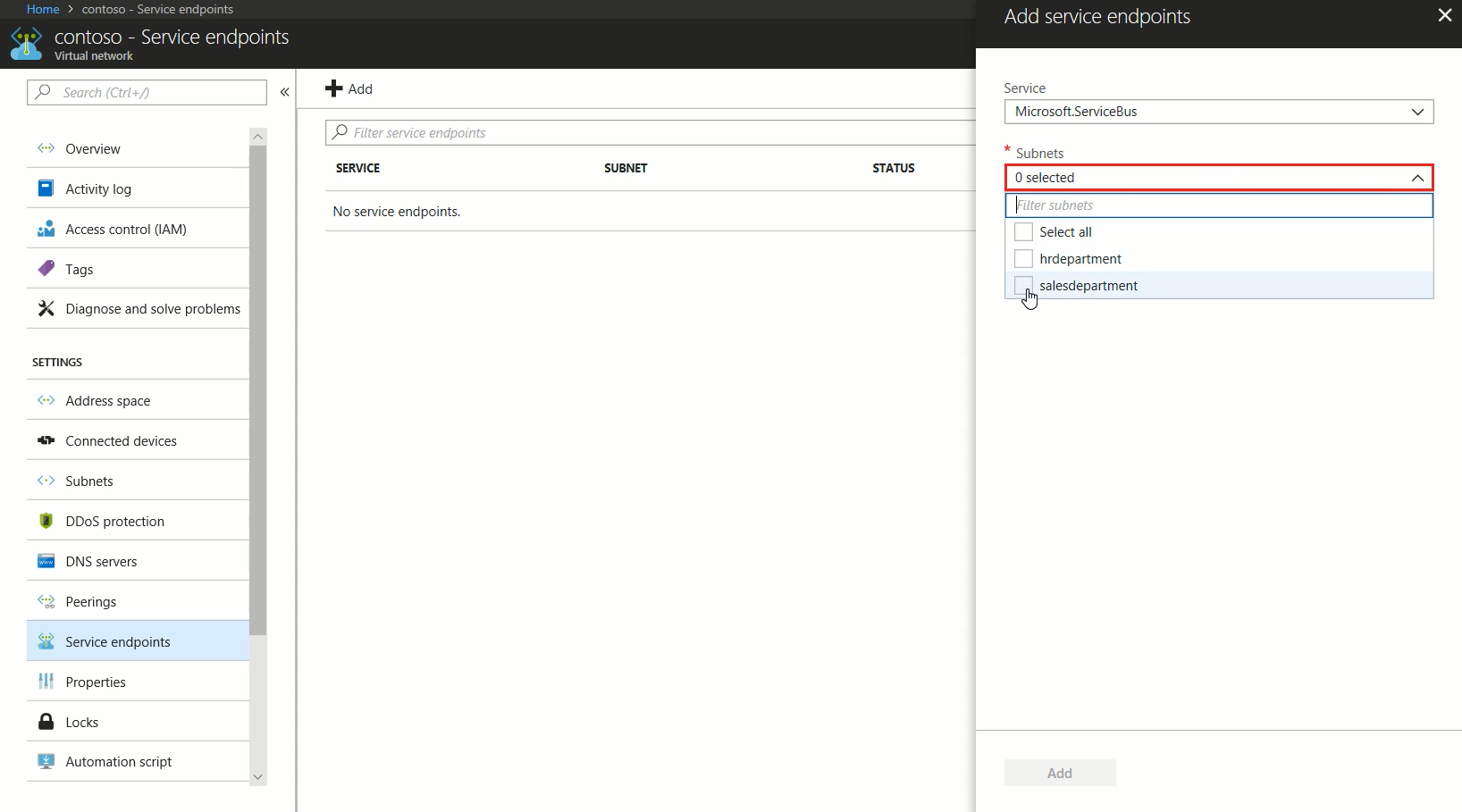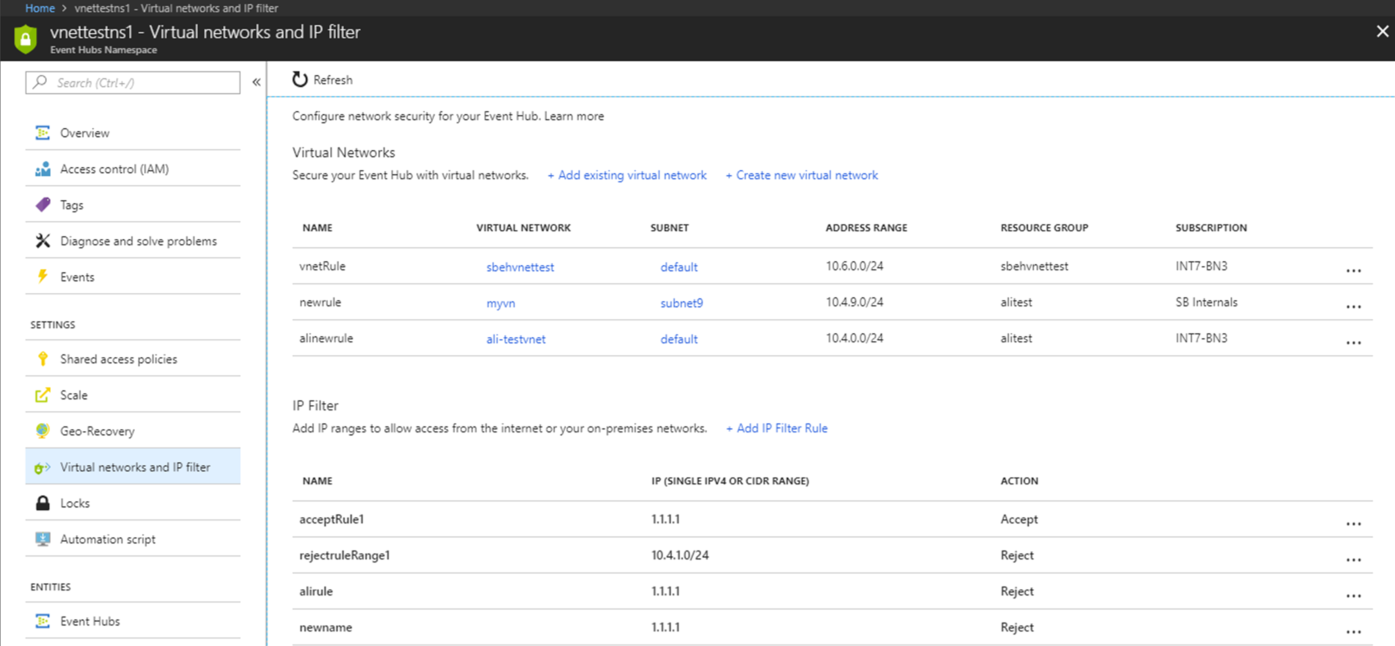Azure Event Hubs and Service Bus Virtual Network Service Endpoints in preview
This blog was co-authored byAnitha Adusumilli , Principal Program Manager, Azure Networking and Sumeet Mittal, Program Manager, Azure Networking.
Azure Event Hubs, a highly reliable and easily scalable data streaming PaaS offering has been prolific this year with new features such as Availability Zones and a big investment into Open Source with enabling support for Apache Kafka. Azure Service Bus, a feature rich cloud messaging PaaS offering that also just offered support for Availability Zones has also been busy. Today, both services are announcing public preview of Virtual Network Service Endpoints.
This new feature adds to the security and control Azure customers have over their workload environments today. Now, traffic from your Virtual Network to your Premium Service Bus namespaces and Standard or Dedicated Azure Event Hubs namespaces can be kept secure from public Internet access and completely private on the Azure backbone network.
Azure Event Hubs and Service Bus are joining the growing list of Azure services that have enabled Virtual Network Service Endpoints.
Important info
- Offered with Dedicated and Standard Event Hubs pricing plans as well as Premium Service Bus
- The feature is offered for free aside from the usual Event Hubs and Service Bus costs
- Available in all public Azure regions
Azure Portal
To enable this feature from the Azure portal you can visit the Virtual Networks blade, select or create the Virtual Network you want and then navigate to the Service endpoints section.
Then enable the Microsoft.EventHub service endpoint or the Microsoft.ServiceBus endpoint.
You can also create new virtual networks and virtual network rules from the Event Hubs or Service Bus namespace overview blades.
Azure Resource Manager
Also you can create Virtual Network rules using an ARM template. For example, the Service Bus template for creating Virtual Network rules looks like the following:
{
"$schema":"https://schema.management.azure.com/schemas/2014-04-01-preview/deploymentTemplate.json#",
"contentVersion":"1.0.0.0",
"parameters":{
"namespaceName":{
"type":"string",
"metadata":{
"description":"Name of the namespace"
}
},
"vnetRuleName":{
"type":"string",
"metadata":{
"description":"Name of the Virtual Network rule"
}
},
"virtualNetworkSubnetId":{
"type":"string",
"metadata":{
"description":"subnet Azure Resource Manager ID"
}
}
},
"resources": [
{
"apiVersion": "2018-01-01-preview",
"name": "[concat(parameters('namespaceName'), '/', parameters('vnetRuleName'))]",
"type":"Microsoft.ServiceBus/namespaces/VirtualNetworkRules",
"properties": {
"virtualNetworkSubnetId": "[parameters('virtualNetworkSubnetId')]"
}
}
]
}
Next Steps
For additional information take a look at our documentation for Service Bus service endpoints and Event Hubs service endpoints.
As a bonus, if you are interested in a feature that allows you to create private connections to your on-premises infrastructure check out Service Bus IP Filtering or Event Hubs IP Filtering.


